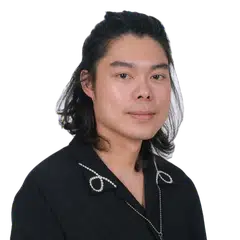I Want To Die But I Want To Eat Tteokbokki author Baek Se-hee dies at 35
Sign up now: Get ST's newsletters delivered to your inbox

Baek Se-hee rose to prominence with her runaway best-selling essay collection I Want To Die But I Want To Eat Tteokbokki.
PHOTO: BLOOMSBURY
Follow topic:
SINGAPORE – Baek Se-hee, the author of best-selling memoirs I Want To Die But I Want To Eat Tteokbokki (2018) and sequel I Want To Die But I Still Want To Eat Tteokbokki (2019), has died at 35.
It is not yet clear how she died. The Korea Organ Donation Agency on Oct 17 said she saved five lives through organ donations, gifting her heart, lungs, liver and both kidneys at the National Health Insurance Service Ilsan Hospital in Gyeonggi province, north of Seoul in South Korea, where she was born.
Baek’s younger sister said in a press release: “She wanted to write, to share her heart with others through her work, and to inspire hope. Knowing her gentle nature, incapable of harbouring hatred, I hope she can now rest peacefully.”
Baek was in Singapore in November as one of the guest stars for the Singapore Writers Festival, speaking candidly about how she navigated her struggles with dysthymia, a mild but persistent depression, at Victoria Theatre.
Her two books, translated from Korean into English by South Korean writer and translator Anton Hur, feature lengthy dialogues between Baek and her therapist. According to her publisher, they have sold about 600,000 copies in South Korea.
Hur wrote on Instagram that her organs have saved five people but “her readers will know she touched yet millions of lives more with her writing”.
“My thoughts are with her family,” he said.
As well as being a book world sensation, Baek’s two books are immensely popular in Singapore, collectively spending over 100 weeks on The Straits Times’ bestsellers list.
Helplines
Mental well-being
National helpline: 1771 (24 hours) / 6669-1771 (via WhatsApp)
Samaritans of Singapore: 1-767 (24 hours) / 9151-1767 (24 hours CareText via WhatsApp)
Singapore Association for Mental Health: 1800-283-7019
Silver Ribbon Singapore: 6386-1928
Chat, Centre of Excellence for Youth Mental Health: 6493-6500/1
Women’s Helpline (Aware): 1800-777-5555 (weekdays, 10am to 6pm)
The Seniors Helpline: 1800-555-5555 (weekdays, 9am to 5pm)
Tinkle Friend (for primary school-age children): 1800-2744-788
Counselling
Touchline (Counselling): 1800-377-2252
Touch Care Line (for caregivers): 6804-6555
Counselling and Care Centre: 6536-6366
We Care Community Services: 3165-8017
Shan You Counselling Centre: 6741-9293
Clarity Singapore: 6757-7990
Online resources
carey.carecorner.org.sg
(for those aged 13 to 25)limitless.sg/talk
(for those aged 12 to 25)
Speaking to ST in 2024, she said of meeting fans here: “I realised that we’re quite similar.
“I had an impression that Singapore was a great country so I thought that the culture would be really different. Related to our appearances or anxieties and related to the competition, the fact that we are all going through similar issues – even though my book was a bestseller, I felt sad for them as well.”
Baek was the second of three daughters and loved reading from a young age. She was a young marketing professional at a publishing house in South Korea when she decided to see a psychiatrist, who allowed her to record their sessions.
Tteokbokki, a South Korean rice cake dish, was her favourite food, and she spoke to ST of the existential ennui of depression, which remains a taboo in South Korea and many Asian societies.
“I was thinking of planning my own death, but I got hungry and ate tteokbokki. I felt guilty thinking that I could still eat tteokbokki when I wanted to die, yet it felt like such a natural thing to do.”

South Korean author Baek Se-hee (seated) autographing her books at the Singapore Writers Festival 2024.
PHOTO: MOONRISE STUDIO
In her first book, she elaborated: “I wonder about others like me, who seem totally fine on the outside but are rotting on the inside, where the rot is this vague state of being not fine and not devastated at the same time.”
Her books have been translated and published in more than 25 countries, including the United Kingdom, Germany, Spain, Italy, Belgium and Poland, leading a wave of South Korean and Japanese cosy bestsellers in the global book market.


